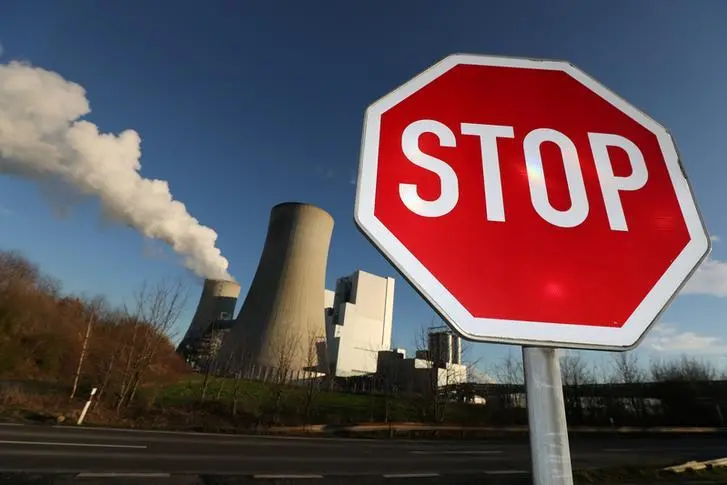PHOTO
BERLIN - The German government is in talks about providing urgent financial support for scores of regional state-owned energy providers which are struggling to cope with soaring gas prices, three sources familiar with the matter said.
The discussions centre on the critical network of hundreds of firms that supply energy and other vital services, such as water, to the country's homes and industry, underpinning Europe's biggest economy.
They are under increasing strain from rocketing energy prices and have been appealing to central government for support, potentially adding to the country's huge bill after it stepped in with 29 billion euros ($28.59 billion) to bail out energy trader Uniper this week.
Ingbert Liebing, head of the German association of local utilities, VKU, who has previously warned about insolvencies in the sector, said they could need tens of billions of euros.
"We are talking about an amount up to a double-digit billions number," Liebing said. "And whether that is 20, 30 or 50 billion is the secondary question for me. The most important thing is that the federal government recognises the need for action."
The discussions between the government and regional states are at an early stage and while no framework has been agreed they concern "liquidity" to assist authorities in buying gas, said one government source, asking not to be named.
A spokesperson for Germany's economy ministry said it was in contact with regional states concerning the municipal authorities, but declined to elaborate.
Germany has more than 900 so-called Stadtwerke companies that distribute two-thirds of all gas, with many also providing services like water, waste disposal and public transport.
There is a growing sense of urgency to provide support as energy bills for German households and industry become increasingly unaffordable.
ACUTE DIFFICULTIES
Liebing said the talks involved measures needed to shield municipal utilities from "acute" difficulties caused by the high price of gas.
"We need liquidity support for the municipal utilities, which now have to buy (gas) at ten times the usual prices before they can sell," he told Reuters, predicting that one tenth of customers may not be able to pay the higher bills.
"This poses enormous difficulties," he said. "Also because the banks sometimes are no longer providing financing."
Unlike big energy companies like Uniper, smaller state-run utilities have struggled to tap a 100 billion euro ($100 billion) fund offered by state bank KfW.
Stabilising the Stadtwerke financially will be a topic at a summit of the heads of states and the German government next week, a person familiar with the matter said.
Markus Lewe, president of the Association of German Cities, warned of a knock-on effect on the public should the local authorities run aground.
"Should municipal authorities be at risk of collapse, many other services such as water, bin collection and public transport could fall apart," he said.
The regional government in North Rhine Westphalia, Germany’s most populous state and home to much of its heavy industry, said it was "urgently" examining how to secure liquidity for the municipal authorities.
It said it was in talks with the federal government, aiming for a "fair solution, where the burden is shared".
Timm Fuchs, energy policy expert at the German Association of Towns and Municipalities, predicted that customer payment defaults could rise to 30% and that up to 200 municipal utilities could be particularly badly affected.
He said a combination of guarantees, loans or grants could help. ($1 = 1.0144 euros)
(Writing By John O'Donnell; Editing by Elaine Hardcastle)





















